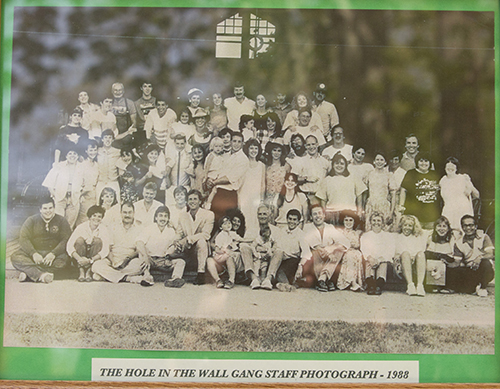Family First
Posted on by Jimmy Canton
Johnny was 8 years old. His request for me to read a letter from his mom and sister forever changed my life.

It was 1988, and Johnny was a camper from my second session. He had sickle cell disease, and throughout the session, I witnessed the ever-present suffering that a child with sickle cell disease experiences – the chronic aches and acute spikes of pain, the resulting falling behind and reluctance to fully participate in activities, and the shame associated with wetting your bed night after night because of the relentless necessity to push fluids.
During rest hour, Johnny handed me a letter from home and asked me to read it out loud. I sat beside him, and by mid letter he had fallen asleep – his head resting against my arm. I was left to read the remaining letter – a love letter pleading with Johnny to be careful, to drink as much as he could, to dress warmly and to get a good night’s sleep. Johnny’s mom and sister acknowledged how quiet home was without him, how profoundly they missed him, and how important it was for him to have this first experience away from home. They would anxiously await his arrival home at the end of the session.
By the end of the letter, I can remember trying to hold back the tears so I wouldn’t wake my camper. It was the first time I experienced the constant fear, anxiety and outrage associated with the unfairness of your child having to live with a debilitating illness. Johnny was the sweetest, most thoughtful camper – why him? Why should he have to experience these painful reminders of his disease EVERY DAY? And with the demands of his care on his mom and sister, I could not imagine that “carefree” was ever a word that Johnny and his family used to describe their day-to-day lives. This is what opened my eyes to the fact that behind every child with a serious illness is a family in crisis – financial, emotional and likely spiritual.
Today, I am humbled and moved by the work Camp does to address the needs of not just the affected child, but his and her siblings, parents and caregivers. As my time with Johnny, and many other camper families, showed me, they suffer alongside their loved one, exhausted by the need to be vigilant and responsive. They, too, need the love, relief and friendship that Camp can offer, so we seek to provide that to them at Family Weekends, Parent and Caregiver Retreats, sibling session and frequent CampOut programs. When we can provide moments of respite and joy for all members of a family, hope can push back the ever-present fears and fortify resilience and courage, ensuring families like Johnny’s can better weather the constant uncertainty that accompanies a child’s serious illness.
Comments: